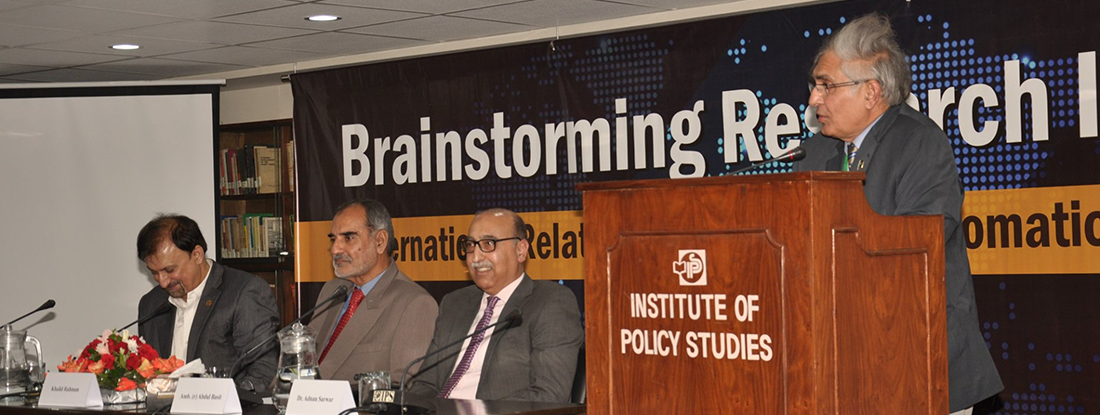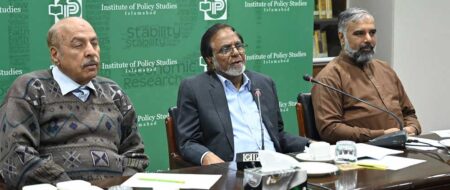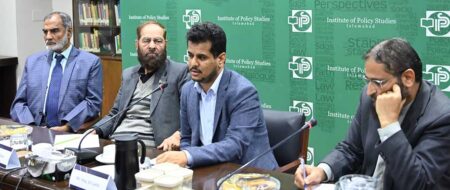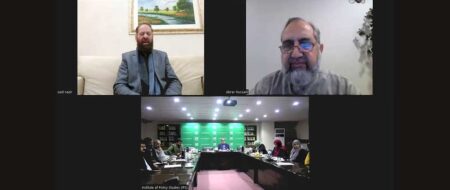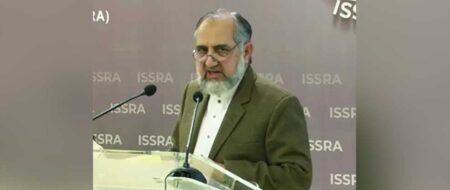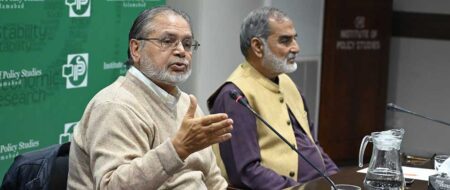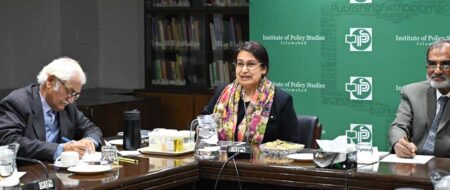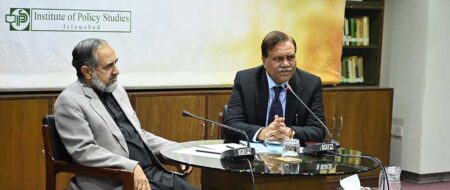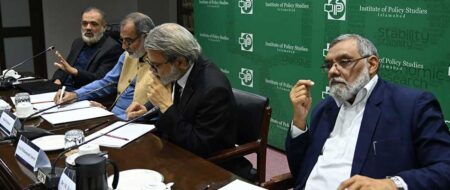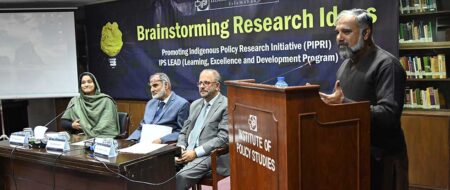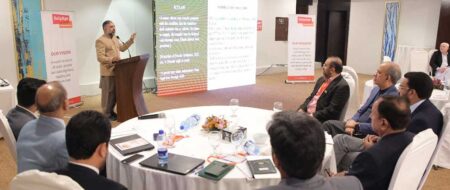Brainstorming Research Ideas: International Relations | Strategic and Diplomatic Studies
Experts urge emerging researchers to focus on areas of untapped potentials
Pakistan
is blessed with enormous multidimensional potential and it is imperative for
emerging researchers to explore and study its untapped areas in a bid to
produce the output that is beneficial for its society.
This
was the gist of the session titled ‘Brainstorming Research Ideas: International
Relations | Strategic and Diplomatic Studies’ which was organized on October
22, 2019 by IPS LEAD – the learning, excellence and development program of IPS
– as part of its series of programs under the initiative ‘Indigenizing Policy
Research in Pakistan’.
The
session was addressed by Ambassador (r) Abdul Basit, Pakistan’s former Higher
Commissioner to India, Air Commodore (r) Khalid Banuri, Dr Adnan Sarwar, HoD,
International Relations, National University of Modern Languages (NUML) and
Executive President IPS Khalid Rahman.
The
main objective of the session was to bridge young social sciences and/or
inter-disciplinary researchers – preferably those enrolled in M. Phil and PhD
programs in International Relations, Political Science, Strategic and Diplomatic
Studies, and other related disciplines – with senior researchers, policy
analysts and field practitioners to brainstorm ideas for such research topics
that are aligned with the country’s indigenous needs.
Speaking
on the occasion, Banuri discussed and pointed at various strategic means and
resources handling which efficiently could have paid considerable dividends to
the country but failure in doing so resulted in converting those prospects into
hazards and challenges. He stressed the aspiring researchers to expand the
scope of their research works to multitudinous directions, identifying and
exploring other similar untapped and mismanaged areas that are present in the
country in abundance, attempting to unleash their true potential while laying
out strategies for their efficient utilization.
Basit
too pointed a number of regional issues in his speech that were needed to be
attended by the budding researchers. He lamented the lack of interest among
emerging researchers, young scholars, and academia in general in taking up
those matters as their research topics, urging them to think from within the
indigenous framework instead of following the thoughts and ideas being put up
by the external world.
Dr Sarwar was very critical over the quality being produced by research students in the country, maintaining that they were rather carrying out their research studies only to fulfill the degree requirements and not with any real objectivity in mind.
Rahman backed the opinion of other scholars, stating that a lot of research being produced in the country at present was actually sponsored by certain external elements only to fulfill their own vested interests. He said that it was very unfortunate that many students were being played at the hands of these entities who were making them see even our native issues from their own lens. “The phenomenon can prove to be destructive not only for the future of students but also for the country” he added before urging the students to start thinking for their research endeavors from within the local contexts while trying to produce the output that is useful and applicable indigenously.


